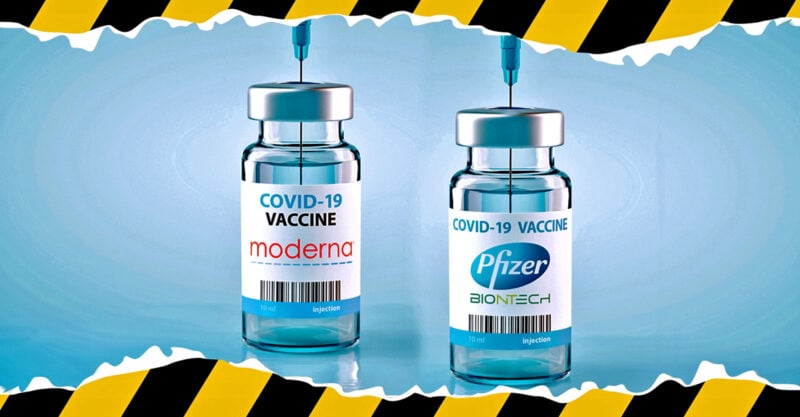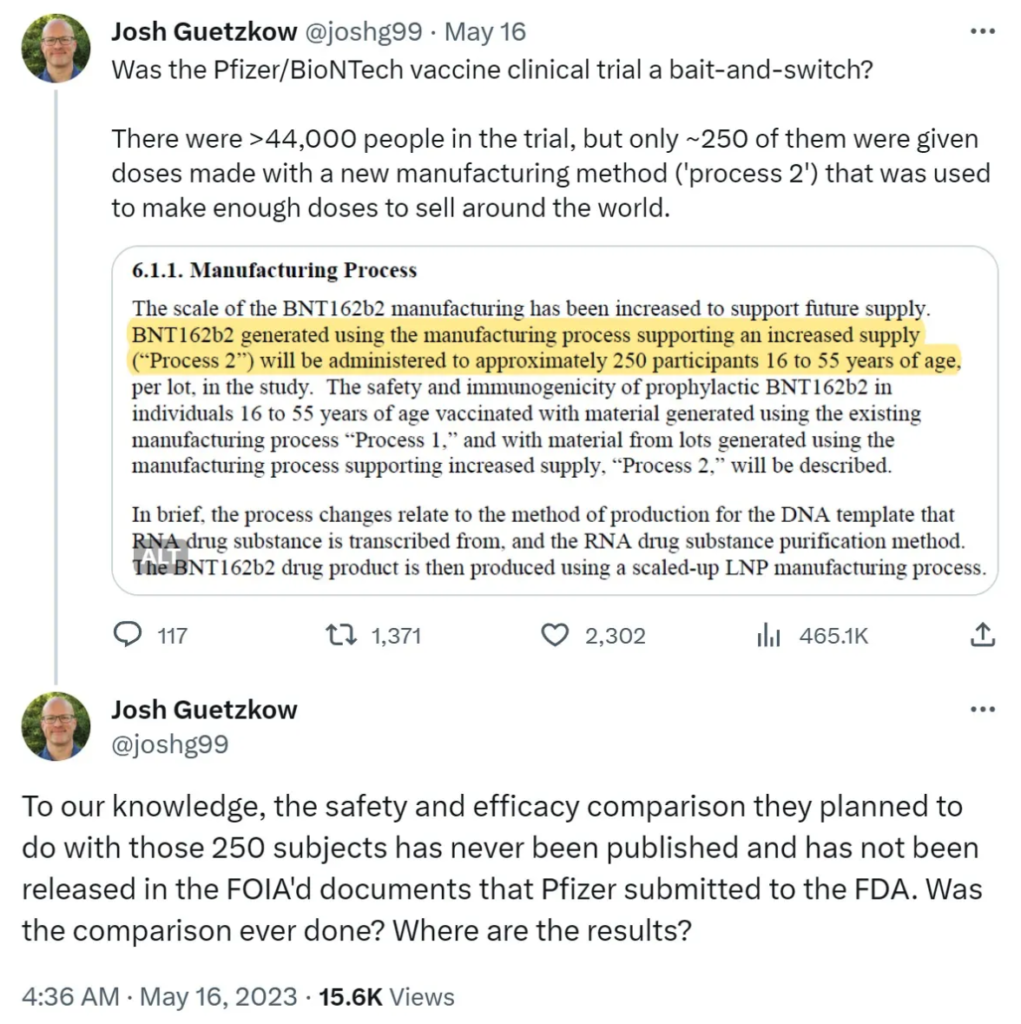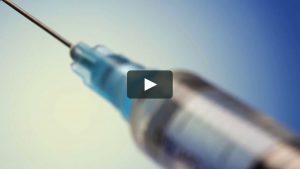Problems with the Pfizer BioNTech Vaccine Trial Study

The original study that showed 95% efficacy and 100% safety of the Pfizer Bio-N-Tech COVID vaccine was a doozy. It claime the Pfizer vaccine was 95% effective. Wow—that’s amazing. Nothing is 95% effective, but this rushed drug using untested technology sure is. This has been thoroughly proved incorrect since, but that doesn’t make you think twice about the methodology of the study, maybe we should just look at it.
1. In 2021, a whistleblower told The BMJ that Pfizer falsified data, unblinded patients, employed inadequately trained vaccinators, and was slow to follow up on adverse events reported in Pfizer’s pivotal phase III trial.
- Participants placed in a hallway after injection and not being monitored by clinical staff
- Lack of timely follow-up of patients who experienced adverse events
- Protocol deviations not being reported
- Vaccines not being stored at proper temperatures
- Mislabelled laboratory specimens, and
- Targeting of Ventavia staff for reporting these types of problems.
2. There were also problems with the study itself. You would expect the end points to be hospitalization or death or even transmission, but no, the $cientists in this study chose mild symptoms and a positive PCR test as an endpoint. Okay fine. Of course, most politicians and talking heads took this to propagandize that the vaccine protected against transmission, hospitalization, and death (which the study didn’t show).
3. They took 170 PCR-confirmed SARS-CoV-2 cases to derive their 95% effectiveness. 162 subjects were in the placebo group and only 8 in the vaccinated group. That would have been pretty meaningful if the study consisted of 170 people, but it consisted of over 43k. So the placebo group had an infection rate of 0.81% and the vaccine group 0.04%. The 0.77% reduction is more meaningful.
4. The most damning part about this study is that, while they counted the 170 PCR-confirmed cases, they excluded 3410 “suspected cases” of COVID-19 that weren’t PCR-confirmed (not clear why they weren’t confirmed). Of course, we know why they didn’t confirm those cases—because it was nearly a 50-50 split between vaccine/placebo recipients. If those were counted, the vaccine efficacy would drop to 19%, which is even higher than the negative efficacy of the drug we’re seeing now several months after the latest boosters.
As Peter Doshi wrote:
With 20 times more suspected than confirmed cases, this category of disease cannot be ignored simply because there was no positive PCR test result. Indeed this makes it all the more urgent to understand. A rough estimate of vaccine efficacy against developing covid-19 symptoms, with or without a positive PCR test result, would be a relative risk reduction of 19% (see footnote)—far below the 50% effectiveness threshold for authorization set by regulators. Even after removing cases occurring within 7 days of vaccination (409 on Pfizer’s vaccine vs. 287 on placebo), which should include the majority of symptoms due to short-term vaccine reactogenicity, vaccine efficacy remains low: 29% (see footnote).
5. Safety? Sure, they’re safe, if they only look at reactogenicity for 7 days. This study didn’t look at any of the AE listed in VAERS associated with the COVID vaccines. If that proves safety to you, I don’t know what to tell you.
A forensic analysis of the study from September 2023 showed evidence of an over 3.7-fold increase in number of deaths due to cardiovascular events in BNT162b2 vaccinated subjects compared to Placebo controls but that that information was not reported by Pfizer/BioNTech.
It also showed that the placebo used in some of the subjects in the Pfizer/BioNTech trial was not saline but the Moderna COVID vaccine:
Also, the entire study appears to be a bait and switch. They baited the world with a vaccine manufactured one way and gave the vaccine manufactured another way (using Ebola virus to replicate) to everyone else.






